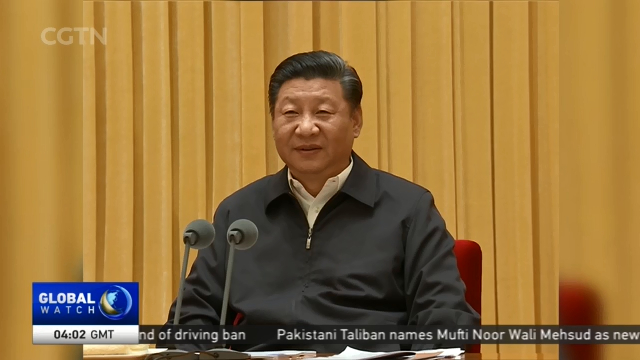
13:21, 24-Jun-2018
China Diplomacy: General Secretary Xi outlines guiding principles of foreign affairs
02:25

We start in the Chinese capital. President Xi Jinping, who is also head of the Communist Party of China, has outlined the guiding principle for diplomatic work in a foreign affairs conference. He said Beijing's foreign policy forges cooperation with the rest of the world, while defending its own sovereignty, security and development interests. CGTN's Wang Tongxuan has more.
As the world undergoes profound changes, Xi Jinping, the head of China's Communist Party, is laying down a clear roadmap for the nation's diplomacy. He said relations with other nations should be based on the overall plan of the CPC Central Committee.
Xi underscored the importance of keeping in mind both internal and international imperatives, focusing on realizing Chinese national's rejuvenation and making contributions to building a community with a shared future for humanity.
To become a moderately-prosperous society. That's a goal China is expected to reach by 2020. Efforts will then turn to reaching the second mile-marker in China's road to development: to become a prosperous, democratic, civilized, and harmonious modern socialist country by 2050.
With those objectives in mind, Xi called for a fairer and more reasonable global governance system and vowed to elevate the country's opening up to a new level under the Belt and Road Initiative.
The Chinese president said the country will maintain stable and balanced relations with major powers, promote a friendly and beneficial environment among neighbors, and deepen the cooperation and common development between emerging markets.
Xi also called for efforts to firmly safeguard China's sovereignty, security and development interests, and take an active part in leading the reform of the global governance system.
He said party members will play a crucial role in setting the political course. He said officials must do what they can to be more competent.
He also said the government needs continued reforms to institutions and mechanisms.
Xi called for the implementation of reforms under party leadership, and the enhancement of party-building in institutions overseas to form a management mechanism that caters to the needs of the new era.

SITEMAP
Copyright © 2018 CGTN. Beijing ICP prepared NO.16065310-3
Copyright © 2018 CGTN. Beijing ICP prepared NO.16065310-3